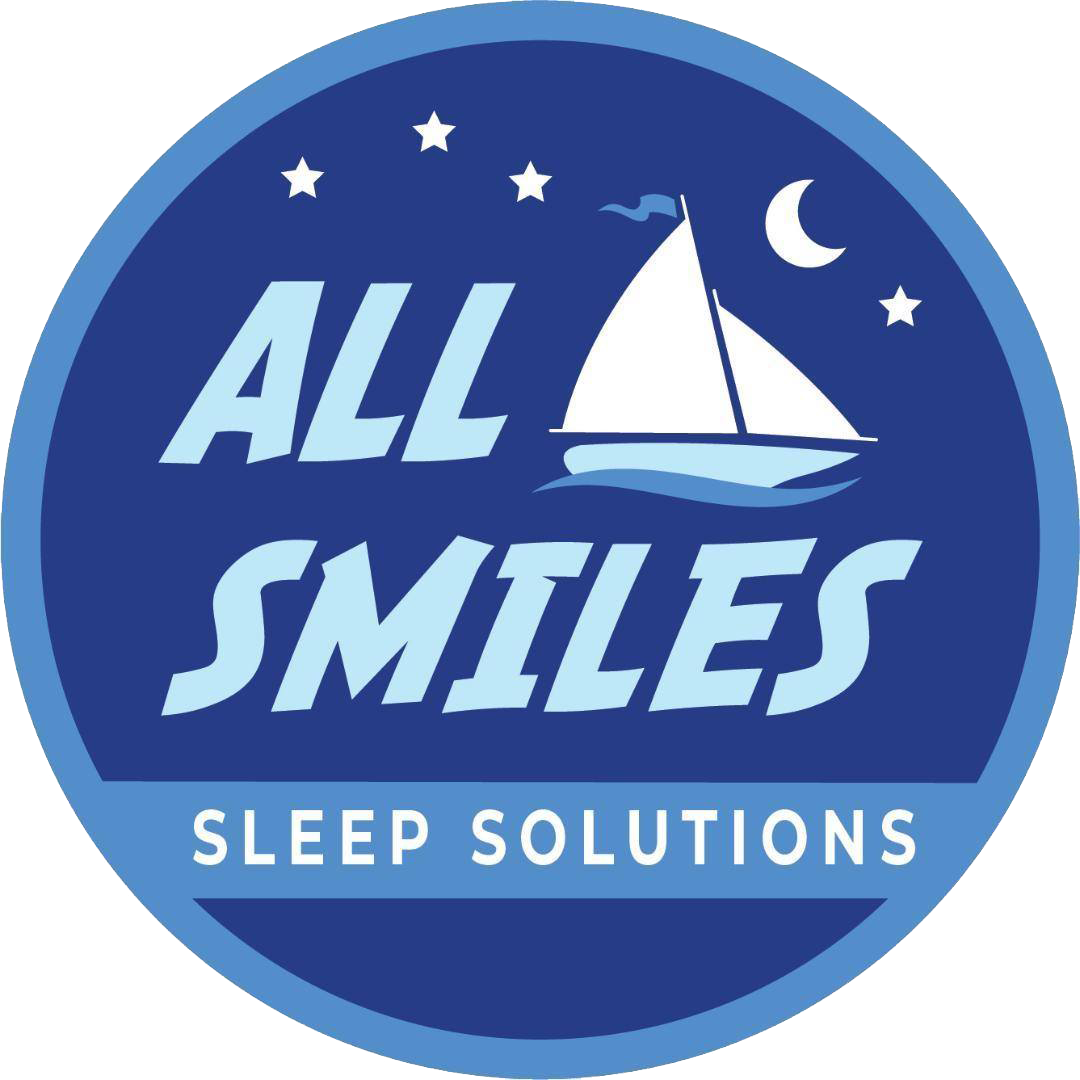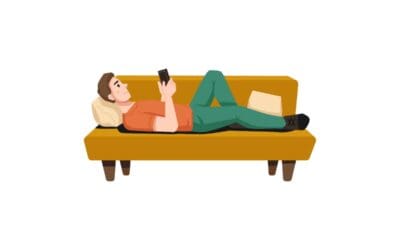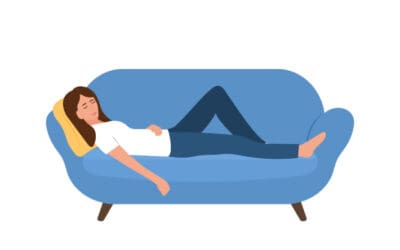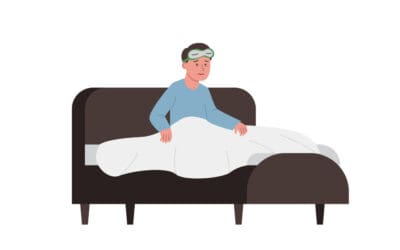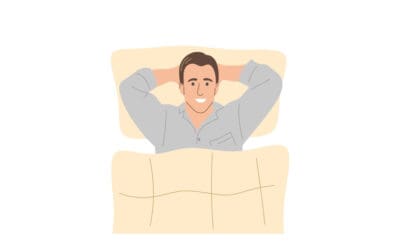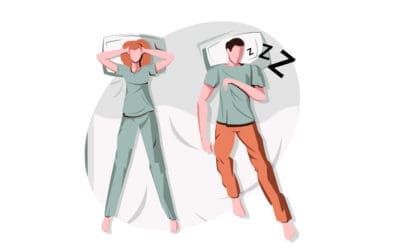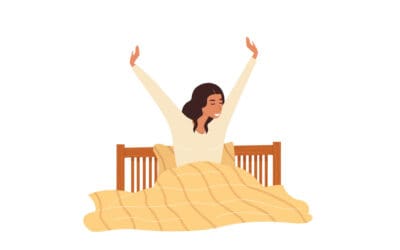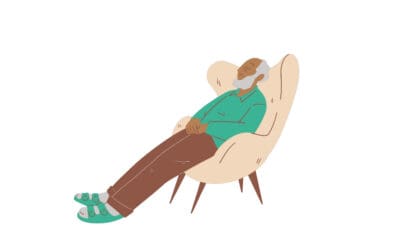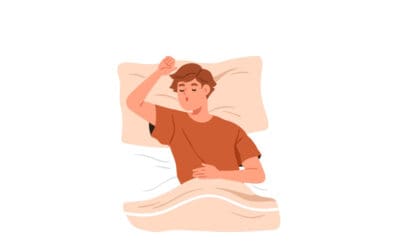Sleep Apnea

What is sleep apnea?
Sleep apnea is a medical condition that causes periodic interruptions in sleep due to lack of air supply to the brain. With sleep apnea, a person stops breathing in their sleep, starving the body of oxygen. This results in gasps for air and jolts that may wake the person up. This may happen several times during the night and the individual may not remember it at all the next morning. People who suffer from sleep apnea may snore loudly, often disturbing their partner’s sleep and keeping them from peaceful rest. Someone might not even be aware that they have sleep apnea and can dismiss it as just a mild form of snoring. Many people also tend to be fatigued and irritable during the day since they aren’t getting a full night’s rest. All of us at All Smiles Sleep Solutions want to remind you that if you suspect you have sleep apnea, we’re here to help, so give us a call at 813-461-6570 or fill out our contact form.
Types of sleep apnea
• Obstructive sleep apnea is the most common form of sleep apnea. This type of sleep apnea occurs when your airway becomes physcially blocked. The blockage may be your tongue or excess tissue in your throat. Even if your throat is not completely blocked, the tissue can partially block your airway, leading to snoring. It can also interrupt airflow, causing a sudden pause in breathing. It is estimated that a quarter of all men suffer from some form of obstructive sleep apnea.
• Central sleep apnea happens when the brain doesn’t send the appropiate signals to the breathing muscles during sleep.
• Complex sleep apnea is a rare combination of obstructive and central sleep apnea.
Symptoms of sleep apnea
• Waking up with a sore or dry throat
• Waking up with a headache
• Excessive daytime sleepiness, such as nodding off during daily tasks
• Irritability or difficulty controlling emotions
• Snoring
Risk factors for obstructive sleep apnea
Risk factors include:
• Excess Weight: An increase in weight, or excessive weight, can increase your risk of sleep apnea. This is due to bulky tissue that collects around the neck region. This excessive tissue can close the throat, especially while lying down.
• Smoking: Smoking tobacco or marijuana, along with any constant exposure to smoke including frequent yard waste burning or campfires, can damage the upper airway muscle function, leading to obstructive sleep apnea. In addition, burning any biological factor puts tar in your lungs, decreasing your lung capacity.
• Narrowed Airway: People can have a narrowed airway due to multiple causes including their tonsils or adenoids, or a deviated septum or turbinate reduction due to inflamed tissue from allergies. In addition, a person may temporarily experience obstructive sleep apnea during a period of nasal congestion from allergies or sickness.
• Male: Studies indicate that men are at risk two to three times higher than women in developing obstructive sleep apnea. This is primarily due to structural differences in their throat and circumference differences in neck size comparison.
• Alcohol Use: Alcohol consumption causes your muscles to relax. Increased relaxation in the muscles in your throat can cause a narrowing in the throat and difficulty for air to pass.
• Other Medical Conditions: A wide range of other medical conditions can increase your risk of obstructive sleep apnea. This may be due to certain medications, changes to your sleeping position, and other body changes due to the health condition.
Health risks of sleep apnea
Specifically, obstructive sleep apnea is more common. This cessation of breathing occurs because the airway is cut off. This can be due to a wide variety of reasons, including:
• The tongue slipping down while you sleep
• Excessive tissue in the throat due to weight gain
• A deviated septum in the nose, either congenital or following an impact
• Inflamed tissue in the nose caused by allergies
• Structural makeup of your jaw or throat including natural structural differences in males
People with obstructive sleep apnea will have their air pipe cut off, either somewhat or entirely, decreasing the amount of oxygen that their body takes in. When oxygen levels drop, the brain releases a stress hormone to wake the person just enough to take in a deep breath. This can be repeated many times a night for long periods of time. It may not seem like much, but the constant drop in oxygen, release of stress hormones, and disruption of REM can put a toll on the body. The immediate problems include a sore throat and exhaustion, and long-term health issues include heart and blood pressure issues.
Sleep apnea treatment
Options for treatment of obstructive sleep apnea include customized oral appliances that patients wear to help them sleep throughout the night as well as continued assessment and monitoring to ensure that these devices are helping in the long run. Positive airway pressure or PAP therapy includes a variety of devices including CPAP (continuous positive airway pressure), BiPAP (bilevel positive airway pressure), and automatic positive airway pressure or APAP. These machines work by keeping airways open and preventing them from collapsing during sleep, allowing patients to breathe easily.
Lighter cases of sleep apnea call for less direct action. Our dentist will most likely recommend a lifestyle change such as weight loss or medicine for your allergies instead. If you smoke they’ll ask you to quit. On the other hand, in extreme cases, surgery might be suggested if all other options have been exhausted.
If Dr. Grimaudo determines that there is enough to investigate further, we will work with specialists in our area that will have you sleeping soundly throughout the night. They’ll work together to provide long-term care for your obstructive sleep apnea. You (and your partner) will thank us, so call us at 813-461-6570 today!
Benefits of sleep apnea solutions
We can help you get a better, more complete night’s sleep. We first need to review the airway, including the nose, throat, and tongue, and then we can discuss both non-surgical and surgical options. Non-surgical solutions can include retainer-like devices designed to bring your lower jaw forward or hold your tongue in place. Surgical solutions can include removing excess tissue, septum correction, or a turbinate reduction.
There are many benefits to finding a solution to obstructive sleep apnea, including a better night’s sleep, better blood pressure, and a lowered risk of heart disease and stroke.
Latest News on Sleep Apnea
The Consequences of Untreated Obstructive Sleep Apnea
Obstructive Sleep Apnea (OSA) patients are at higher risk for other serious health complications. When left untreated, snoring and sleep apnea lead to several significant chronic diseases or conditions, as well as many other health complications. Stroke Asthma...
Sleep Apnea Assessment
Are you feeling tired today? There are a myriad of reasons why someone might have trouble sleeping. One of these, sleep apnea, is a common but serious sleeping disorder that shouldn’t be ignored.
Home Sleep Test
If during your consultation it is suspected that you may suffer from sleep apnea, we will assist you in ordering a convenient and accurate home sleep test designed to assist in the diagnosis of sleep-disordered breathing.
Oral Appliance Therapy
What if your snoring issue could be solved simply by wearing a custom oral device? What if you could ditch the CPAP machine? This may not be the answer for everyone, but it could be the answer for many.
Is snoring affecting your relationship?
Snoring can be problematic on multiple levels. It could be a symptom of a potentially dangerous sleep disorder, and it could be making it difficult for your partner to get a good night’s rest.
Benefits of Treating Sleep Apnea
People with obstructive sleep apnea can range from being unaware, to ignoring, to taking steps to improve. Our goal is to help navigate all three of these different situations and provide the knowledge, tips, and guidance to better health.
Are You At Risk For Sleep Apnea?
Sleep apnea can be caused by different reasons. Central sleep apnea is due to a communication issue between your brain and the muscles that control your breathing.
What is Sleep Apnea?
Sleep apnea is a sleep disorder that may pose a risk to your quality of life and overall health.
Get in touch with All Smiles Sleep Solutions
Office Location
17200 Camelot Court
Unit 101
Land O’Lakes, FL 34638-7279
Satellite Location
1180 Ponce DeLeon
Suite 401
Clearwater, FL 34756
